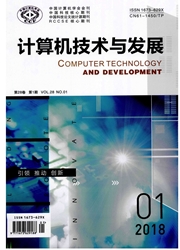

 中文摘要:
中文摘要:
构造一个有效信任模型造在同伴之间的信任关系在是必要的对等(P2P ) 联网并且提高 P2P 系统的安全和可靠性。当前的信托模型仅仅集中于消费者评估到一宗交易,它可以被恶意的同伴滥用夸大或谣言供应商故意。在这份报纸,我们基于相互的评估建议一个新奇信任模型,叫的 METrust,压制同伴恶意的行为,例如不诚实的评估和战略攻击。METrust 包括相互的评估,类似风险,时间窗户,刺激,和惩罚机制考虑因素。信任价值由直接信任价值和建议信任价值组成。以便禁止不诚实的评估,两个参加者应该基于同伴给评估信息当计算直接信任价值时,关于办理拥有经验。鉴于这,相互的评估一致性因素和它的时间腐烂功能被建议。而且,到还原剂,基于朋友的建议计算建议信任的风险凝视,类似风险被介绍测量类似计算的无常,当类似被用来测量可靠时。试验性的结果证明 METrust 是有效的,并且它在各种各样的恶意的行为的抑制有优点。
 英文摘要:
英文摘要:
It is necessary to construct an effective trust model to build trust relationship between peers in peer-to-peer (P2P) network and enhance the security and reliability of P2P systems. The current trust models only focus on the consumers' evaluation to a transaction, which may be abused by malicious peers to exaggerate or slander the provider deliberately. In this paper, we propose a novel trust model based on mutual evaluation, called METrust, to suppress the peers' malicious behavior, such as dishonest evaluation and strategic attack. METrust considers the factors including mutual evaluation, similarity risk, time window, incentive, and punishment mechanism. The trust value is composed of the direct trust value and the recommendation trust value. In order to inhibit dishonest evaluation, both participants should give evaluation information based on peers' own experiences about the transaction while computing the direct trust value. In view of this, the mutual evaluation consistency factor and its time decay function are proposed. Besides, to reduce the risk of computing the recommendation trust based on the recommendations of friend peers, the similarity risk is introduced to measure the uncertainty of the similarity computing, while similarity is used to measure credibility. The experimental results show that METrust is effective, and it has advantages in the inhibition of the various malicious behaviors.
 同期刊论文项目
同期刊论文项目
 同项目期刊论文
同项目期刊论文
 期刊信息
期刊信息
